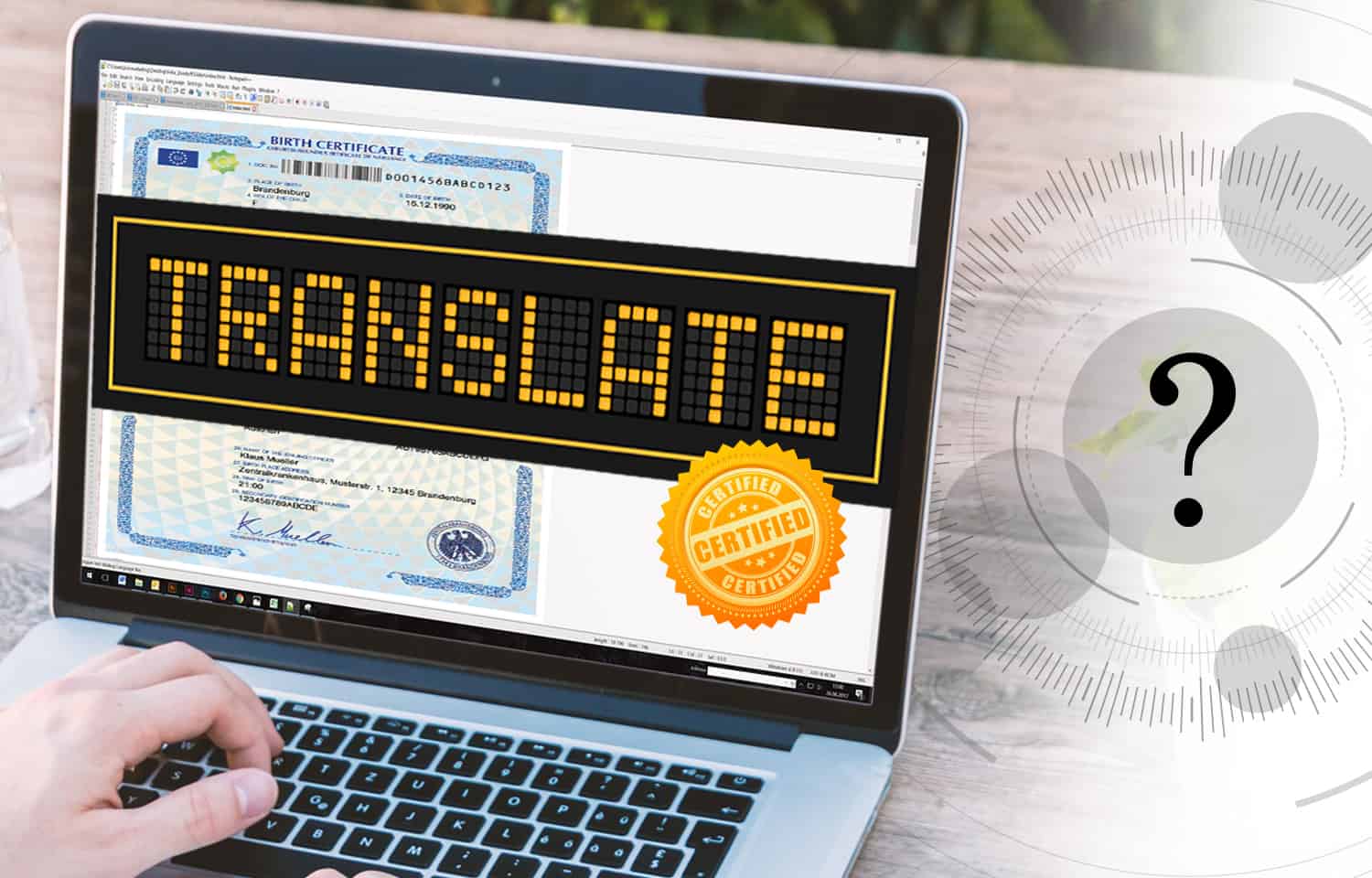What Is a Certified Translation? When Do You Need It?

When people and businesses think of legal translation, one of the many questions that come to mind is about certified translation.
But what’s so special about legal translation? And what is a certified translation? Does it require a certified translator? How about a sworn translator? Are they the same person? Do they have the same qualifications?
In this article, we’ll be answering all these questions along with what makes a translation certified and when you’d need a certified translation.
What is a certified translation?
Before we define what a certified translation is, it’s important you know that there are many misconceptions about this term.
A certified translation is a translation done by a professional translator. However, it’s not just any professional translator. The translator involved in a certified translation is one who is verified and attested by a notary.
So, what’s a notary?
Investopedia defines a notary as:
“A publicly commissioned official who serves as an impartial witness to the signing of a legal document. Document signings where the services of a notary are generally necessary are real estate deeds, affidavits, wills, trusts, powers of attorney, bills of sale, or other official transactional documents. The main reason a notary is used is to deter fraud.”
The American Translators Association defines a certified translation as “a translation accompanied by a signed statement attesting that the translation is accurate and complete to the best of the translator’s knowledge and ability.”
Prepared by a professional translator, translation company, or legal translation agency, a certified translation can also be referred to as a “certificate of accuracy.”
Like any certificate, the “certificate of accuracy” indicates to the receiving party that the translated legal document before them is as accurate as possible and of the highest standard.
Certified translator vs certified translation
Despite sounding similar, a certified translation isn’t necessarily prepared or translated by a ‘certified translator.’
A certified translator is someone who passes a certification exam that verifies their professional translation skills.
Just because a certified translator has translated a legal or other kinds of document doesn’t mean it’s a certified translation.
It’s worth mentioning that not all languages and countries have a certified translation exam. Moreover, not all countries offer certifications to individuals.
Often, it’s a translation company that can provide certified translation services.
Certified translation vs notarized translation
As mentioned, a certified translation entails a certification that confirms the accuracy of a translation.
A notarized translation is one that’s done by a notary, which means it more likely relies on following official protocols than offering the same quality and accuracy as a certified translation would.
“A notary public only legally acknowledges or notarizes, the identity of the individual signing the certification statement. While the terminology is inaccurate, it is helpful to know that this is commonly used by end users and clients,” explains the American Translators Association.
Do you need a certified translation service?
You may think that getting a ‘certified translation is a bit fancy. And you’d be right in most cases.
Certified translations are required when you have specific legal documents that need to be verified and presented to the government or legal bodies.
For example, you’ll likely need certified translation services if you’re looking to translate legal documents such as:
– Birth certificates
– Marriage/Divorce certificates and decrees
– Educational diplomas, certificates, and official papers
– Army transcripts
– Deeds
– Wills
– Power of attorney
– Legal settlements
– Arbitration agreements and decrees
– Some international contracts and/or agreements
– Various court forms
It is therefore imperative that you know what your needs are and who you’re presenting these documents to.
Based on that knowledge, you’ll know whether you need a certified translation or a notarized translation or just a regular professional translation.
Conclusion
Legal translation is one of the hardest forms of translation. That’s mainly because of the confidentiality and exceptional level of accuracy involved.
It’s also why one of the best practices of translating legal documents involves working with highly-skilled legal translators and reviewers.
It’s because of that, the cost of legal translation is considerably high. Whoever is tasked with translating legal documents needs to have a special and not-so-common skillset.
In Egypt and many other countries around the world, the process of certifying a legal document isn’t easy. Nor can it be done by an individual or a freelancer.
And because of this many companies, entities, and individuals turn to translation companies or legal translation agencies like TranslationPartner.
Many legal translation firms are legally equipped to certify a translation.
If you’re looking for certified legal translation services, get in touch with the team at TranslationPartner and we’ll help you with your legal translation needs.
